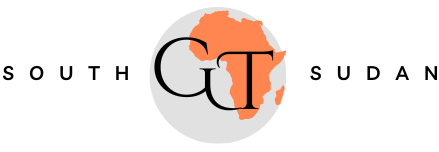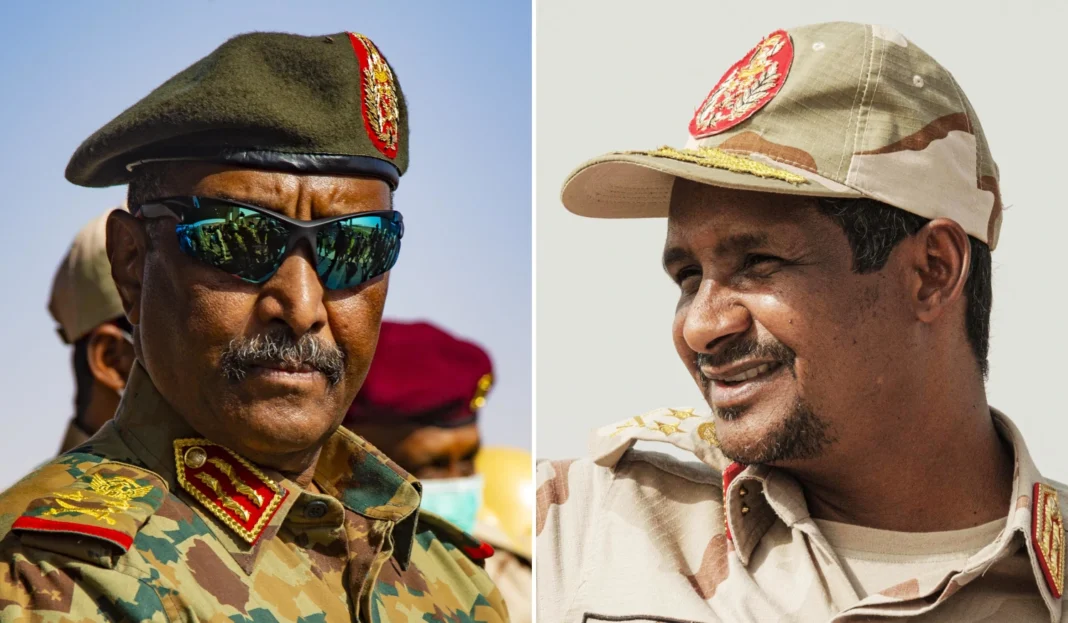Sudan’s feuding generals (Abdel Fattah al-Burhan and Mohamed Hamdan Dagl commonly known as ‘Hemeti’) in the file photo.
The US-based, The Sentry Report, suggests that dirty money has been fueling the conflict in Sudan, and calls on the International Community to do more to bring to an end the ethnic cleansing and mass displacement of the civil population from their homes.
The new report details the plan for united international action and targeted sanctions as millions face ethnic cleansing and conflict-driven starvation in Sudan.
The Sentry spotlights how the European Union (EU), with considerable leverage in Sudan via aid, trade, and migration, can escalate actions to help bring an end to the devastating civil war.
More than a year since the start of the conflict, as hostilities continue to escalate, the response of the international community has been insufficient.
Ethnic cleansing has been reported, and Sudan is now home to the largest displaced population in the world, with millions at risk of death due to starvation.
Anrike Visser, Senior Advisor for Illicit Finance Policy at The Sentry, said: “The EU must take a strong and united stance against the leaders who put their personal and financial interests above the well-being of Sudan. The EU urgently needs to ramp up the pressure to help end the conflict. So far, the response of the international community is highly insufficient to influence the leaders to end the war. The financial pressure needs to be stepped up significantly to match the scale and urgency of the crisis unfolding in Sudan.”
Although the EU swiftly condemned the violence and has dedicated significant amounts of aid together with its member states, The Sentry report details how the EU has lagged in its response to the conflict compared to the US and the UK, has not done enough to block the dirty money feeding the conflict, and has not gone far enough in holding to account the individuals principally responsible for the fighting.
John Prendergast, Co-Founder of The Sentry, said: “For the two parties to the conflict, protecting their significant economic interests is paramount; in fact, it is what they are fighting over. Therefore, undermining these financial incentives and means of funding of the conflict is a crucial avenue to speed up the path towards peace and transition to civilian rule.”
The warring powers in Sudan, the Rapid Support Forces (RSF) and the Sudanese Armed Forces (SAF) are fighting to retain their power and control over economic interests that span vast parts of the economy.
The RSF, and especially the family of General Mohamed Hamdan Dagalo, or “Hemedti,” has accumulated a significant commercial empire, with interests in mining, construction, agriculture, real estate, and procurement.
The SAF also operates or is involved in extensive commercial holdings stemming from the Bashir era in weapons manufacturing, construction, automotive, hospitality, and pharmaceuticals.




